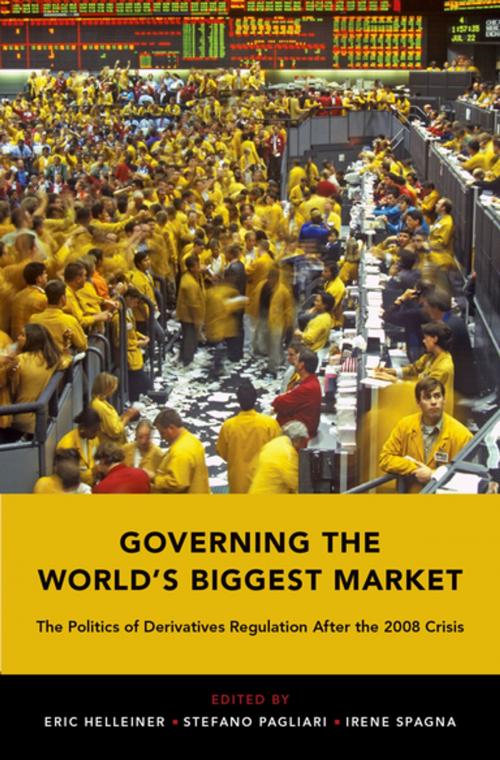Governing the World's Biggest Market
The Politics of Derivatives Regulation After the 2008 Crisis
Nonfiction, Social & Cultural Studies, Political Science, Politics, Economic Conditions, History & Theory| Author: | ISBN: | 9780190864590 | |
| Publisher: | Oxford University Press | Publication: | February 7, 2018 |
| Imprint: | Oxford University Press | Language: | English |
| Author: | |
| ISBN: | 9780190864590 |
| Publisher: | Oxford University Press |
| Publication: | February 7, 2018 |
| Imprint: | Oxford University Press |
| Language: | English |
In the wake of the 2008 global financial crisis, the regulation of the world's enormous derivatives markets assumed center stage on the international public policy agenda. Critics argued that loose regulation had contributed to the momentous crisis, but lasting reform has been difficult to implement since. Despite the global importance of derivatives markets, they remain mysterious and obscure to many. In Governing the World's Biggest Market, Eric Helleiner, Stefano Pagliari, and Irene Spagna have gathered an international cast of contributors to rectify this relative neglect. They examine how G20 governments have developed a coordinated international agenda to enhance control over these markets, which had been allowed to grow largely unchecked before the crisis. In analyzing this reform agenda, they advance three core arguments: first, the agenda to rein in these enormous markets has many limitations; second, the reform process has been plagued by delays, inconsistencies, and tensions that fragment the governance of these markets; and third, the politics driving the reforms have been extremely complicated. An authoritative overview of how this vast system is governed, Governing the World's Biggest Market looks at how the goals, limitations, and outcomes of post-crisis initiatives to regulate these markets have been influenced by a complex combination of transnational, inter-state, and domestic political dynamics. Moreover, this volume emphasizes how crucial regulatory reform is to stabilizing the global economy long-term.
In the wake of the 2008 global financial crisis, the regulation of the world's enormous derivatives markets assumed center stage on the international public policy agenda. Critics argued that loose regulation had contributed to the momentous crisis, but lasting reform has been difficult to implement since. Despite the global importance of derivatives markets, they remain mysterious and obscure to many. In Governing the World's Biggest Market, Eric Helleiner, Stefano Pagliari, and Irene Spagna have gathered an international cast of contributors to rectify this relative neglect. They examine how G20 governments have developed a coordinated international agenda to enhance control over these markets, which had been allowed to grow largely unchecked before the crisis. In analyzing this reform agenda, they advance three core arguments: first, the agenda to rein in these enormous markets has many limitations; second, the reform process has been plagued by delays, inconsistencies, and tensions that fragment the governance of these markets; and third, the politics driving the reforms have been extremely complicated. An authoritative overview of how this vast system is governed, Governing the World's Biggest Market looks at how the goals, limitations, and outcomes of post-crisis initiatives to regulate these markets have been influenced by a complex combination of transnational, inter-state, and domestic political dynamics. Moreover, this volume emphasizes how crucial regulatory reform is to stabilizing the global economy long-term.















